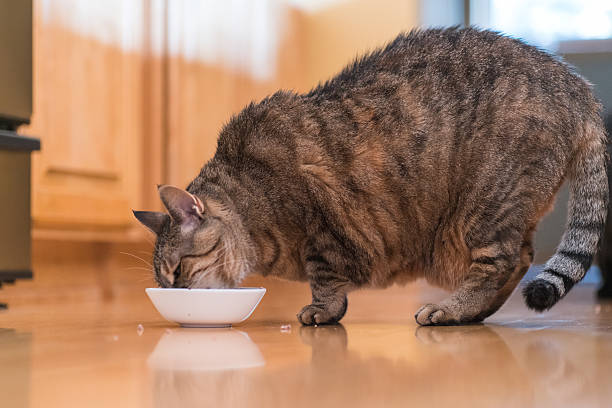overeating animals

Helping obese animals lose weight is essential for their overall health and well-being. Here are some strategies for different types of pets:
Cats:
Consult a Veterinarian: Start by consulting your veterinarian. They can assess your cat’s weight, recommend an ideal body weight, and create a weight-loss plan.
Diet: Choose a high-quality, low-calorie cat food. Measure portions carefully to avoid overfeeding.
Frequency: Divide daily meals into smaller, more frequent portions to increase calorie burn.
Physical Activity: Encourage playtime and exercise to keep your cat active.
Monitoring your cat's progress is crucial. Regularly weigh your cat and adjust their diet as needed to ensure they maintain a healthy weight. This helps in keeping track of their overall health and well-being.
Dogs:
Veterinary Guidance: Consult your vet to determine your dog’s ideal weight and create a weight-loss plan.
Portion Control: Measure food portions accurately. Avoid free-choice feeding.
Meal Frequency: Smaller, more frequent meals can help burn calories.
Exercise: Regular walks and playtime are crucial for weight loss.
Absolutely! Well-designed homemade dog food recipes can be very effective for weight loss. These recipes often focus on high-protein, low-fat ingredients to ensure your dog gets the necessary nutrients while shedding extra pounds. For example, a high-protein, low-fat beef and cod recipe or a healthy, low-fat meal with ground turkey, sweet potatoes, and spinach can be great options. Always consult with your veterinarian to ensure the recipes meet your dog's specific dietary needs.
